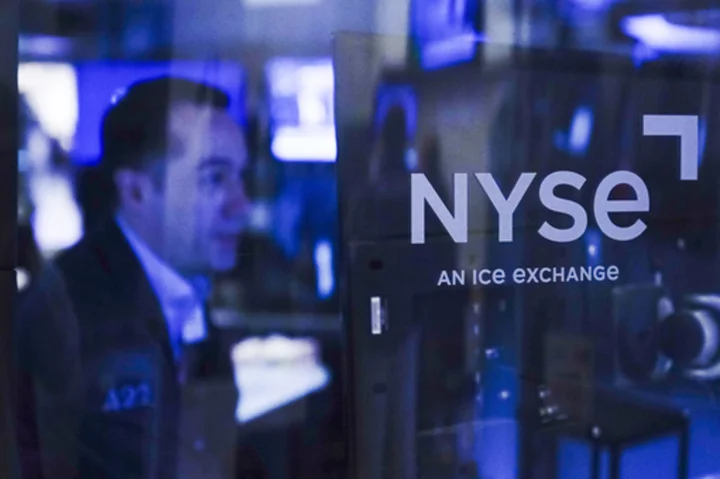Wall Street followed global markets lower early Thursday as countries around the world cranked up interest rates one day after Federal Reserve Chair Jerome Powell told Congress he believes inflation still isn’t under control.
Futures for the Dow Jones industrials and the S&P 500 each slipped 0.3% before the bell.
Powell told lawmakers in the House of Representatives Wednesday that “the process of getting inflation back down to 2% has a long way to go.” He reiterated that a couple more rate increases may be on the way, though the speed of the hikes is likely to slow after moving at a furious pace since early 2022.
High rates have slowed the U.S. economy — particularly the manufacturing and housing sectors — and helped cause three high-profile failures in the U.S. banking system. The banking industry remains under pressure, even after the federal government acted quickly to provide support.
Powell appears before the Senate later Thursday.
Elsewhere, benchmarks in Europe tumbled after the Bank of England raised its main interest rate by a half a percentage point to a 15-year high of 5%. The increase was more than analysts had anticipated.
It was the bank's 13th rate hike in a row in its effort to combat stubbornly high inflation. The bank's Monetary Policy Committee warned of further increases to come.
Higher rates are sure to heap more pain on people with loans, especially the 1.4 million or so households in the U.K. that will have to refinance their mortgages over the rest of the year.
France's CAC 40 shed 1.1% in midday trading, while Germany's DAX fell 0.5%. Britain's FTSE 100 slipped 1.2%.
Central banks of Switzerland and Norway also raised their benchmark interest rates to counter inflation, and Turkey’s central bank on Thursday raised its key rate by 6.5 percentage points, boosting it to an eye-popping 15%.
In Asian trading, Japan's benchmark Nikkei 225 fell 0.9% to finish at 33,264.88. Australia's S&P/ASX 200 declined 1.6% to 7,195.50. South Korea's Kospi gained 0.4% to 2,593.70. Markets were closed in Hong Kong and Shanghai for the Dragon Boat Festival, a national holiday.
That provided traders there a break from jitters about possible renewed tensions in the U.S.-China relationship after President Joe Biden referred to Chinese President Xi Jinping as a dictator. That pushed “back against the idea that the U.S.-China relationship could be warming with Secretary of State Antony Blinken’s visit,” Yeap Jun Rong, market analyst at IG said in a commentary.
During Blinken's Beijing visit earlier this week, both sides agreed to stabilize ruptured ties. But Blinken said China was not ready to resume military-to-military contacts.
Fitch Ratings said in its June Global Economic Outlook that the global growth outlook for next year has deteriorated, given the prospects of higher interest rates around the world.
“Global growth is showing near-term resilience but with core inflation remaining stubbornly high, central banks will have to continue tightening policy in the coming months," it said.
Elsewhere Thursday, the Labor Department reported the number of Americans applying for unemployment benefits remained elevated last week, a possible sign that the Federal Reserve’s rate hikes are beginning to cool a surprisingly resilient labor market.
U.S. applications for jobless claims were 264,000 for the week ending June 17, the same as the previous week’s revised number.
Layoffs have risen in recent weeks and markets will be watching to see if they remain elevated, which could factor into the Fed’s next rate decision in July.
Also upcoming Thursday is data on existing home sales for May. Sales of existing homes have declined in the past year-and-a-half as interest rates have climbed, slowing the housing market. Analysts expect sales fell again in May. In April, sales were down more than 23% from a year ago.
In energy trading Thursday, benchmark U.S. crude fell $1.40 to $71.13 a barrel in electronic trading on the New York Mercantile Exchange. Brent crude, the international standard, lost $1.43to $75.70 a barrel.
In currency trading, the U.S. dollar edged up to 142.09 Japanese yen from 141.81 yen. The euro cost $1.0993, little changed from $1.0990.
___
Kageyama reported from Tokyo; Ott reported from Silver Spring, Maryland.

